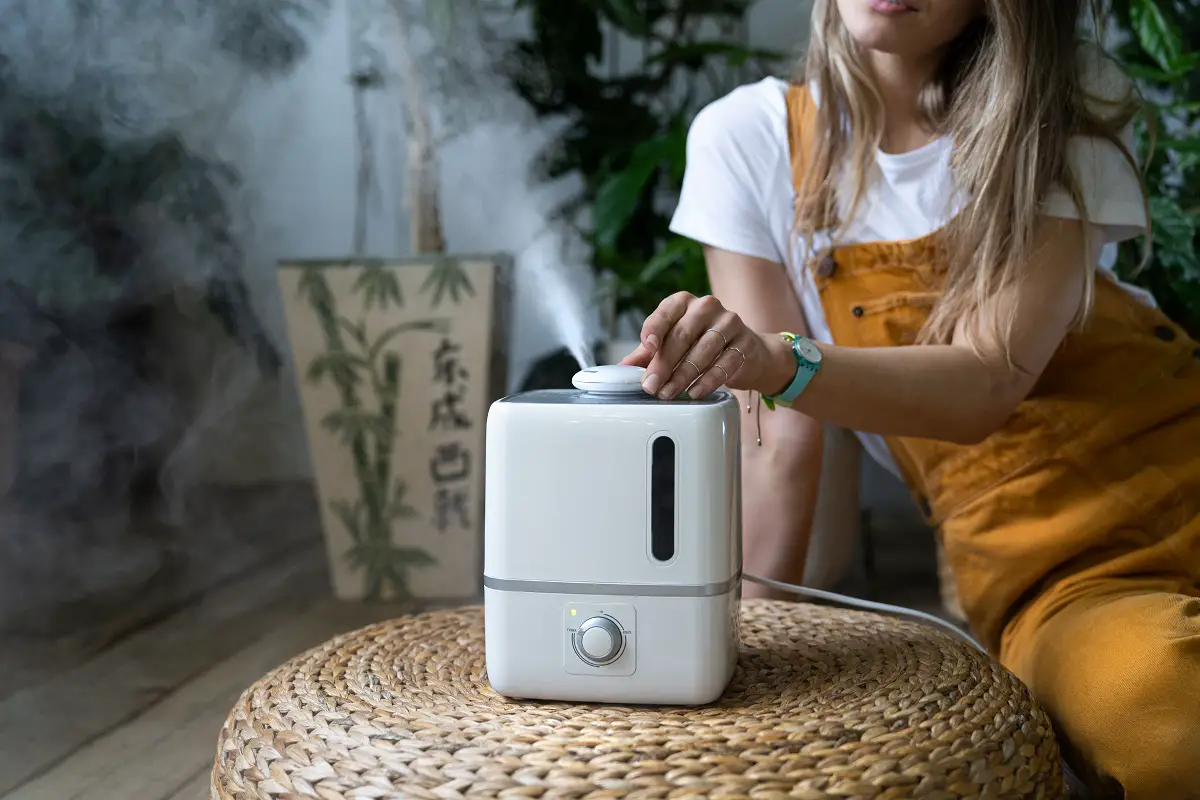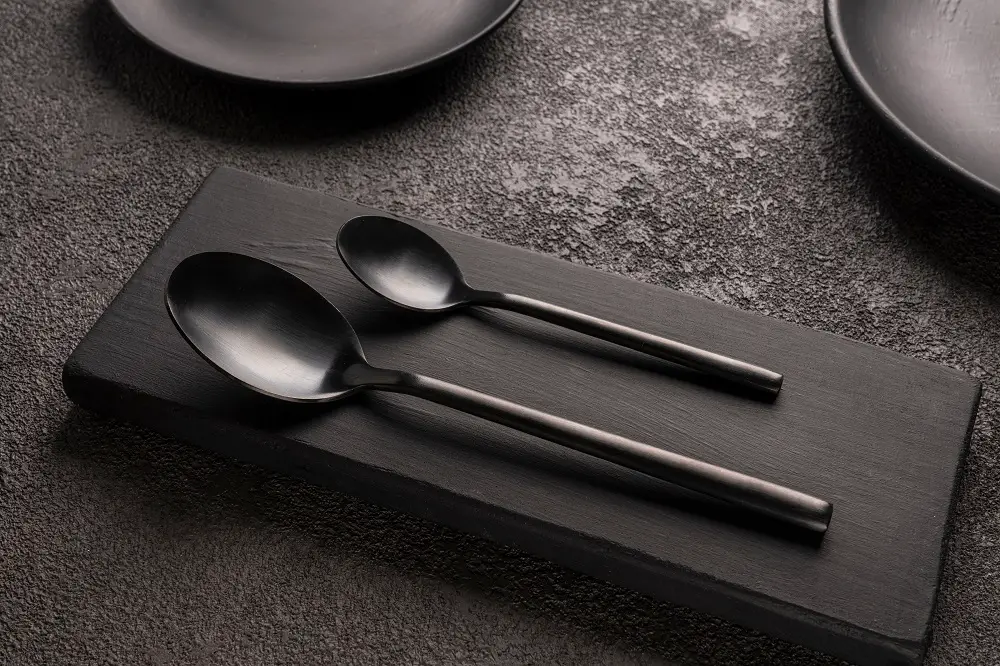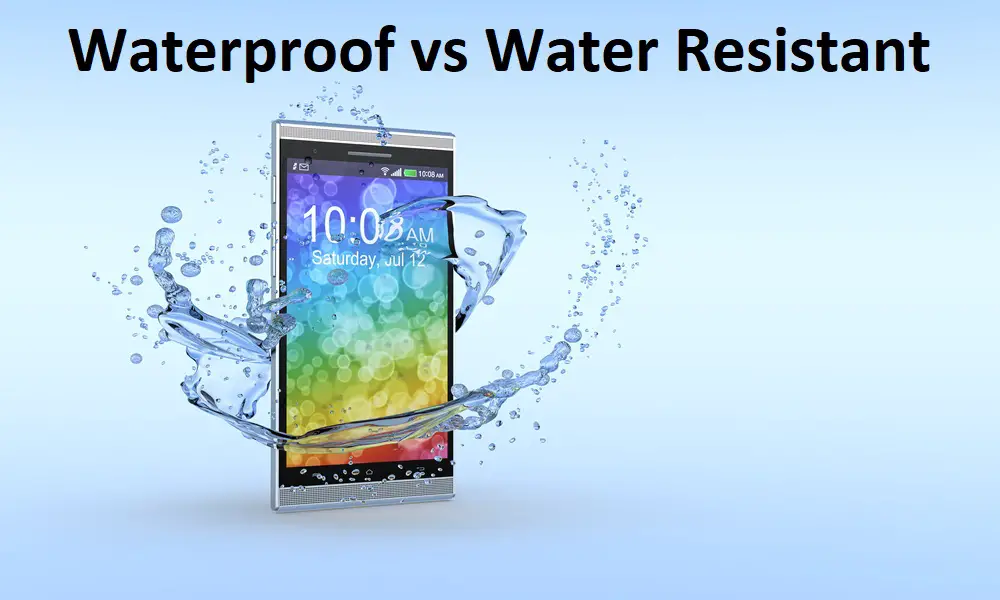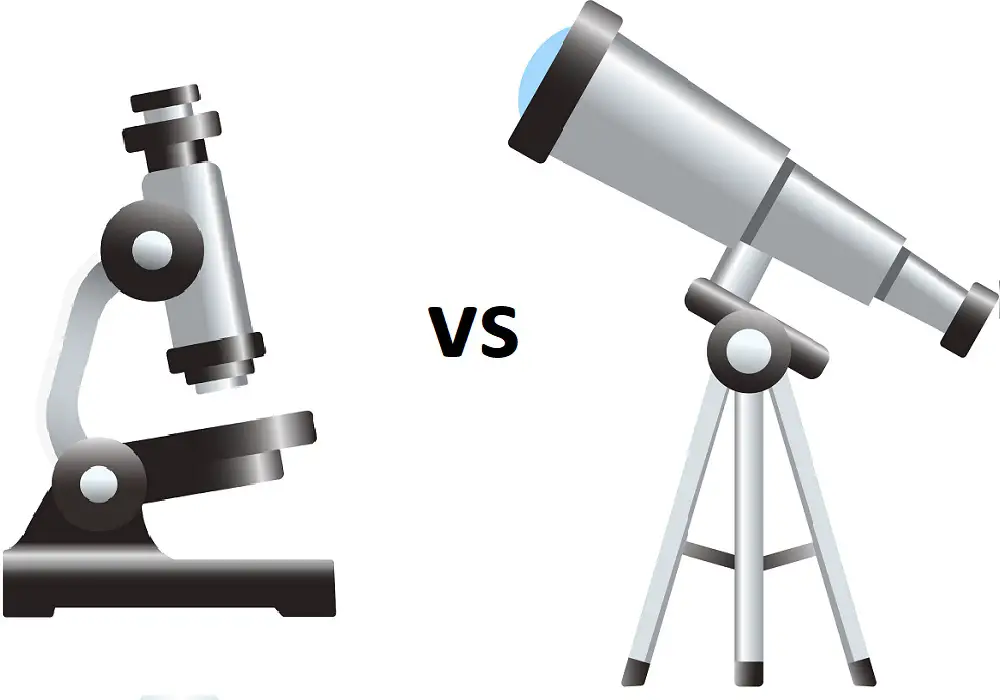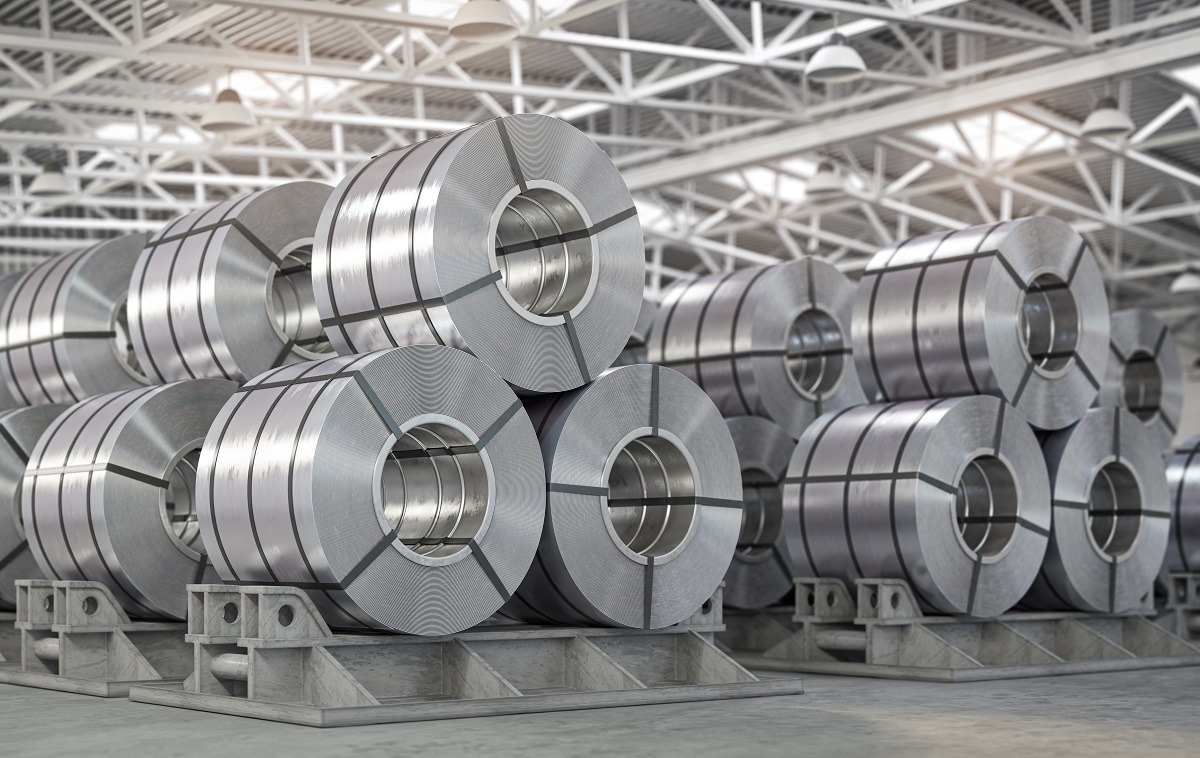Difference Between Air Purifier and Dehumidifier
If you are someone who suffers from asthma or allergies, you know how important having clean air is. Even a little dust or allergen may throw you into a frenzy of sneezes or produce an asthma attack.
To combat these problems and have clean air at home, air purifiers or dehumidifiers can come in handy. That is why today, in this article, we will discuss the difference between an air purifier and a dehumidifier so that you can make a sound decision.
Air Purifier vs. Dehumidifier: An Overview
Let’s give you an overview of the entire topic first;
What Is an Air Purifier?
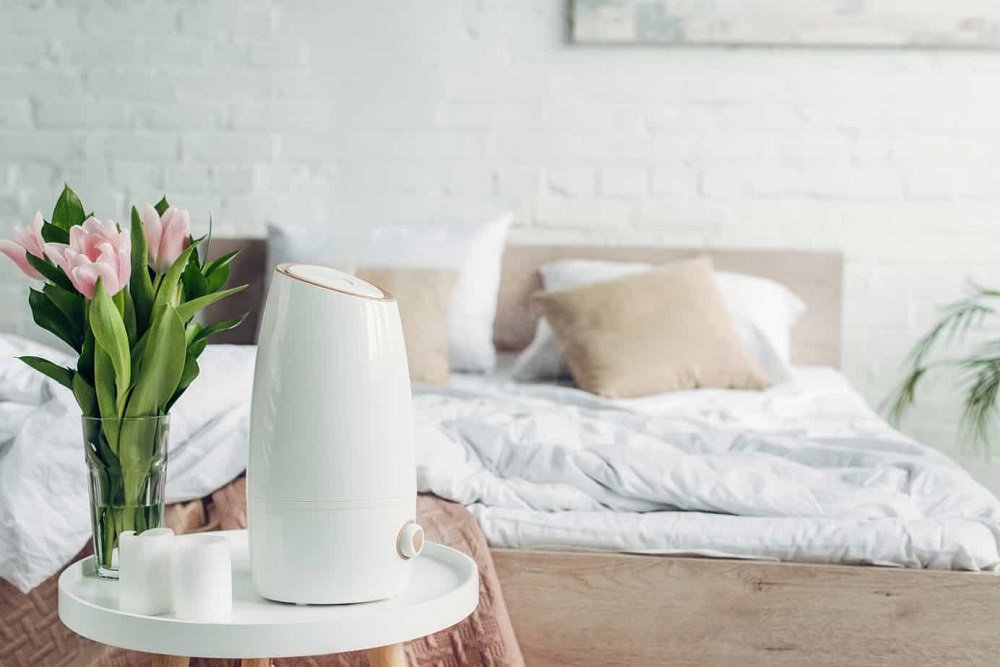
This device has a filter that works to remove pollutants from the air, such as smoke & dust particles, pollen, etc.
How Does an Air Purifier Function?
Air circulates through this machine. The filter in the device, when the air is going through it, traps and collects particles present in the air. Which particles will get trapped depends on the filter. A HEPA filter can trap particles as small as 0.3 microns, and it traps 99.97% of them.
With an air purifier, the filters require regular changing. The result of an air purifier is clean, irritant-free air.
What Are the Uses for an Air Purifier?
If you want to reduce the effects of various irritants present in the air on your lungs, then you should get an air purifier. Such irritants include pollen, smoke, dust, pet dander, etc.
What Is a Dehumidifier?
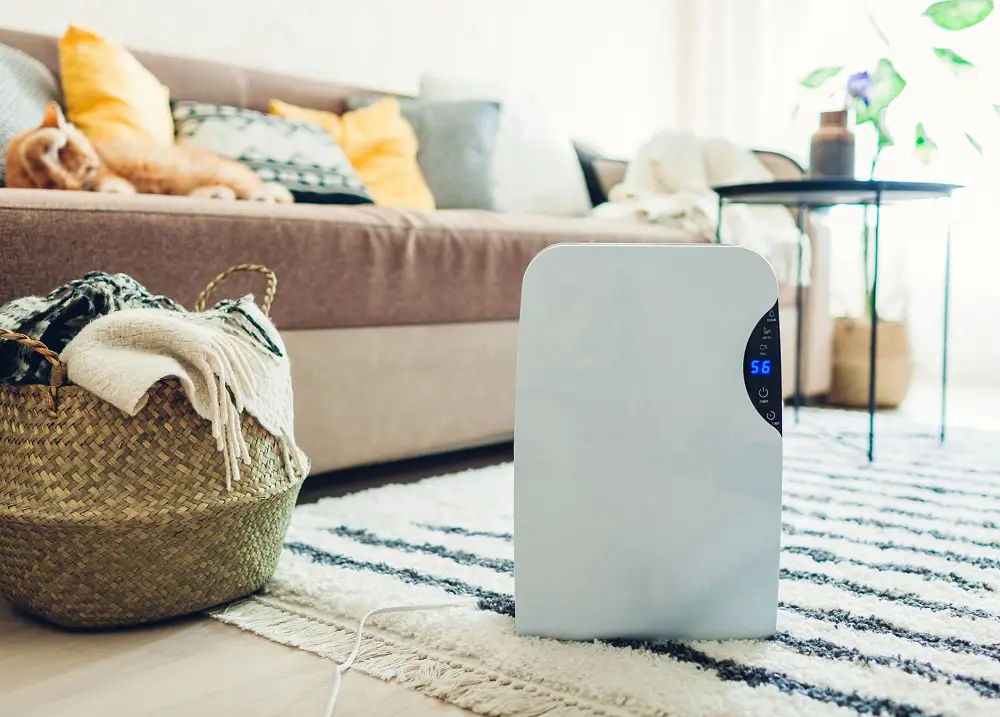
On the other hand, this device works the exact opposite of a humidifier. It takes away any moisture present in the air of a room.
How Does a Dehumidifier Function?
This machine sucks in the air of a room and then collects the moisture present in the air. Then the dry air comes back out in the room. The collected moisture is kept in a tank, which you need to pour out and clean regularly.
Now the way a dehumidifier strips the air of moisture varies mainly in two ways. One way is by cooling the air to release the moisture in it, then warming it up before it is released in the room.
And the other way is by using a material to absorb or take out moisture from the air. The result of a dehumidifier is low moisture air, in which the growth of mold & dust mites is prohibited. Also learn how humidifier and vaporizer differs.
What Are the Uses for a Dehumidifier?
Rooms that are moldy or damp or just too humid will benefit from the use of a dehumidifier. Low moisture in the air reduces the risks of having a moldy room.
Different Types of Air Purifier and Dehumidifier
Aside from the differences between them, there are a few types of air purifiers and dehumidifiers in the market. They are explained briefly in this section-
Types of Air Purifier
- Filter Air Purifier
Uses a High-Efficiency Particulate Air (HEPA) filter or Ultra-Low Penetration Air (ULPA) filter to trap irritants when circulating air.
- Ionizing Purifier
A powerful small electrical field known as the corona discharge is used in this purifier. It uses particles with opposite charges to collect irritants and settle them out of the air.
- Ozone Generator
Changes the oxygen present in air into ozone molecules that works similarly to ionizing purifiers.
- Absorbents
Contains an absorbent inside that absorbs any fumes, chemicals, and odors present in the air.
- UV Light Purifier
Uses ultra-violet radiation to make micro-organisms present in the air sterile.
Types of Dehumidifier
- Refrigerative or Mechanical
The most common type of dehumidifier. Draws air in with a small fan, then draws the moisture out with a refrigerated coil. The condensed air is stored in a container. This kind of device is effective in the air with over 45% humidity.
- Desiccant or Adsorption
Uses a belt that is exposed to air at a lower temperature. The air gets heated and then reused, which removes humidity. Best of 35% or lower humidity.
- Electronic
Contains a Peltier heat pump, which makes a cold surface. The moisture in the air gets condensed on the cool surface. This kind of dehumidifier is quieter, as there is nothing moving inside it. But energy efficiency is lower, and this design only works for small dehumidifiers.
- Ionic Membrane
An ionic pump uses a specialized ionic membrane to move moisture particles in or out at a molecular level through sealed enclosures. These are mostly used for industrial purposes.
Which One Is Better: Air Purifier or Dehumidifier?
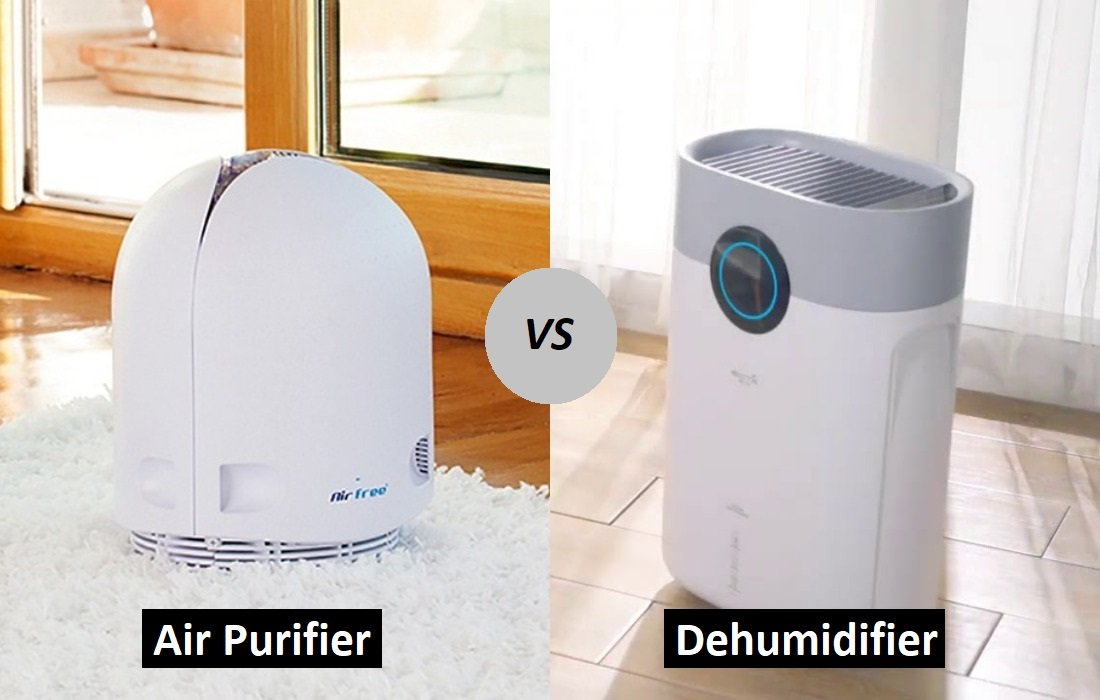
Which one of these two you should get entirely depends on your needs. In this section, we will highlight the main differences between these two devices.
Air Purifier Can Purify Air
As you know the function of the former already, you know that it has a filter that removes all the little airborne pollutants such as smoke particles, dust particles, pollens, etc., thus purifying the air.
On the other hand, a dehumidifier cannot remove these small particles from the air. So, if you are someone who is asthmatic or has allergies to pollens, smoke particles, or dust particles, an air purifier is your best bet.
Dehumidifier Controls Moisture Level
This is something an air purifier does not do. If your room gets mold or mildew very easily, then an air purifier cannot help you. A dehumidifier, on the other hand, lessens the amount of moisture in the air. By doing so, it can help control the amount the allergens in the air.
Less moisture inhibits the growth of mold, which is an allergen. Also, humid air helps dust mites grow. So, if you have allergies related to dust mites or mold, get a dehumidifier.
Maintenance Is Less with Air Purifiers and More with Dehumidifiers
The only maintenance an air purifier really needs is the change of its filter. And depending on the quality of air in your room, this change may need to be one every four months or less, sometimes only annually. So, if you are someone busy with no time to spare maintaining items in your home, this is for you.
Dehumidifiers, on the other hand, collects and stores moisture in a container. You need to frequently clear out and clean this container, coils, buckets, etc. Also, you need to check the coils of a dehumidifier periodically for frost. So, it requires more work.
If you have time to do that every once in a while, a dehumidifier might work for you.
A Dehumidifier Is Cost-Efficient, Air Purifier May Break the Bank
Air purifiers, in general, tend to cost more compared to dehumidifiers. The filers that you need to change are not cheap, so the maintenance cost is high.
Depending on the type of dehumidifier, you either do not need to change anything, or you do, but the item does not cost as much.
Health Hazards Related to Air Purifiers
Ionic air purifiers work by making ozone molecules, which eliminates odor. However, a high concentration of ozone is dangerous. But the good news is that most air purifiers produce very low amounts of it. Air purifiers may also produce nitrogen oxide in small amounts when humidity is present.
Dehumidifiers do not produce any molecules, so they are safer.
Difference Between Mobile Home Water Heater and Regular Water Heater
Difference Between Air Purifier and Dehumidifier: A Comparison Table
Now, let’s have a look at the major differences between the two devices in a nutshell;
Parameters of Comparison |
Air Purifier |
Dehumidifier |
| Function | Uses filters to remove airborne irritants & contaminants | Strips air of excess moisture, lowering the humidity level of a room |
| Filtration | Multi-stage air filtration | Single filtration |
| Air Purification | Yes | No |
| Impact on Humidity Level | None | Decreases |
| Noise Level | Little to loud | Average to quite loud |
| Maintenance Requirement | Every few months or annual | Regular cleaning |
| Works Best in | All conditions | Humidity level over 45-50% |
| Average Cost (including maintenance) | High | Medium |
| Best for | People with asthma or allergy from pollens, smoke, or dust | People with allergies related to mold, mildew, and dust mites |
Final Words
If you are someone very easily affected by irritants and pollutants in the air, then you need the cleanest air possible. Even though dehumidifiers can help, air purifiers are your best bet in this case.
And if you are facing mold, mildew, and allergens that stem from these, then a dehumidifier will help you better than an air purifier can.
We hope, by now, you clearly understand the difference between air purifiers and dehumidifiers. If that is the case, then you should be able to easily choose the one more suitable to your needs out of these two.
Both of these devices can promote a healthier living environment, so you will be glad that you have spent the money on one. By the way, you can also use both of these devices together if you would like to enjoy the benefits of both.
Have a great day!
